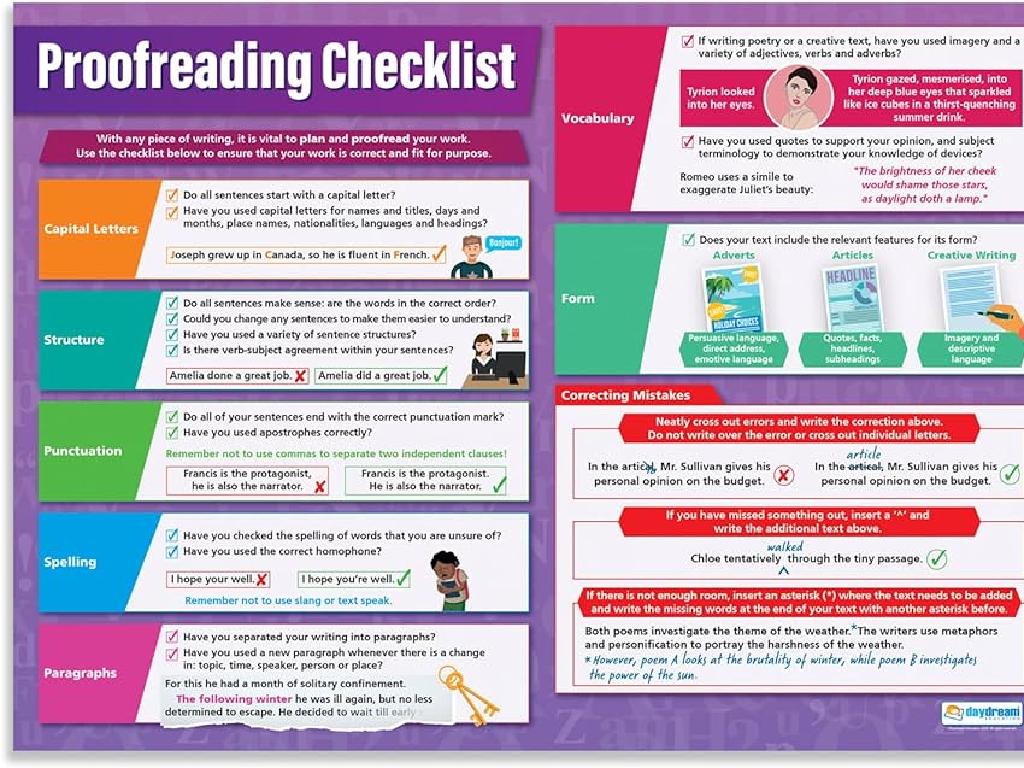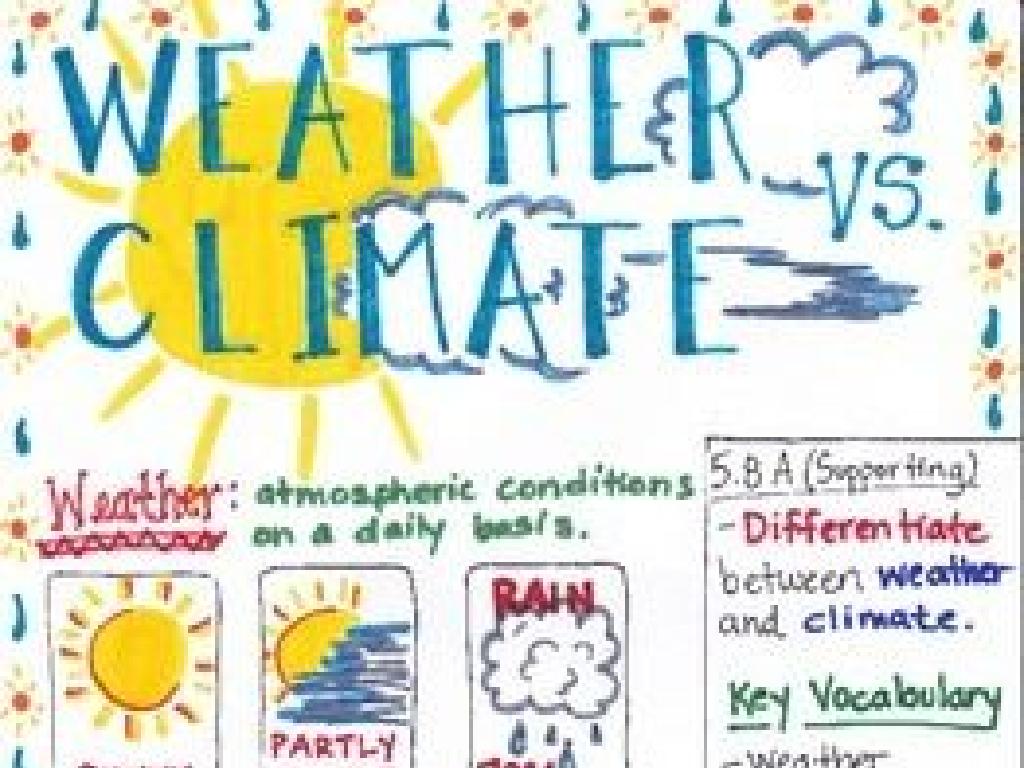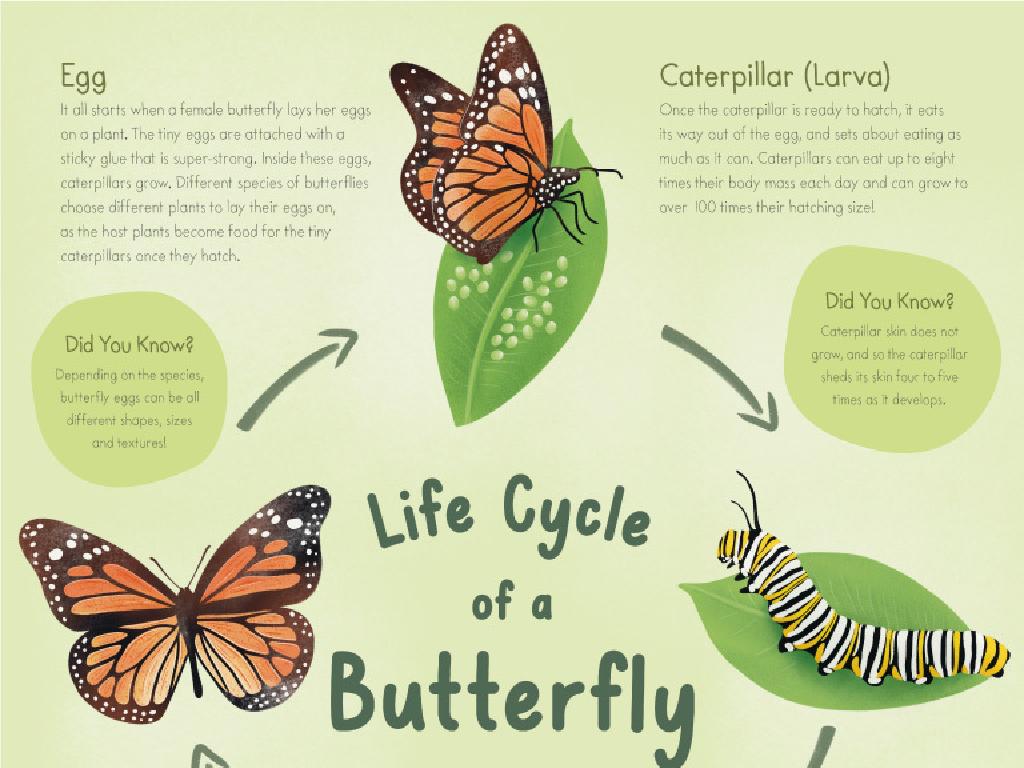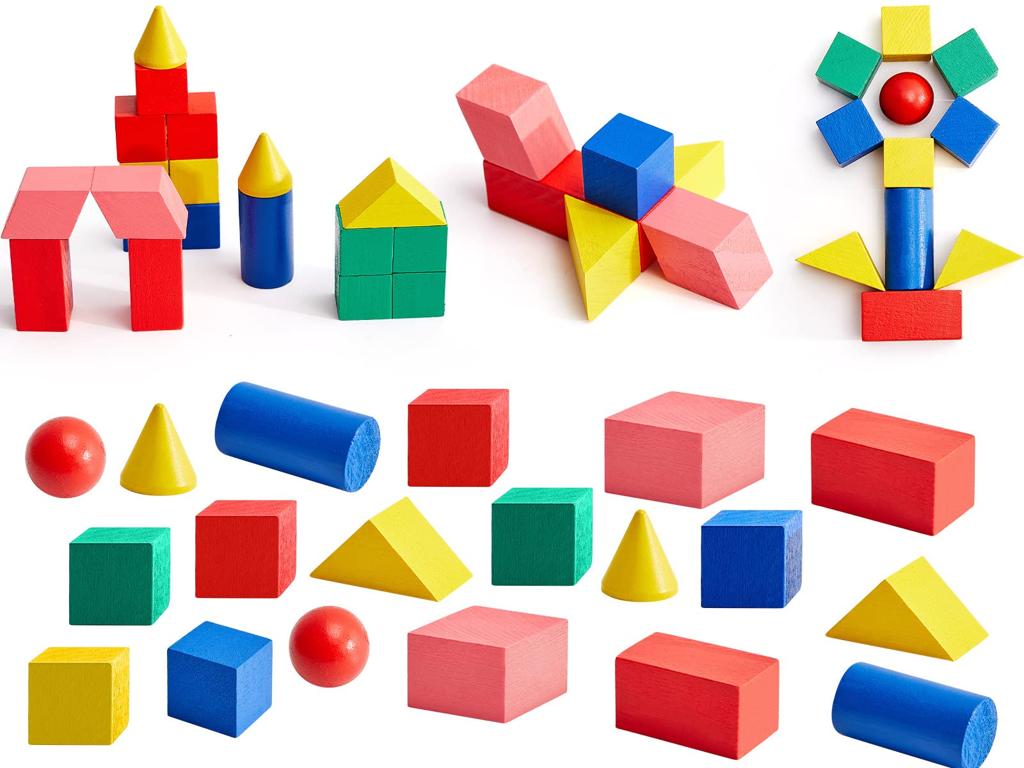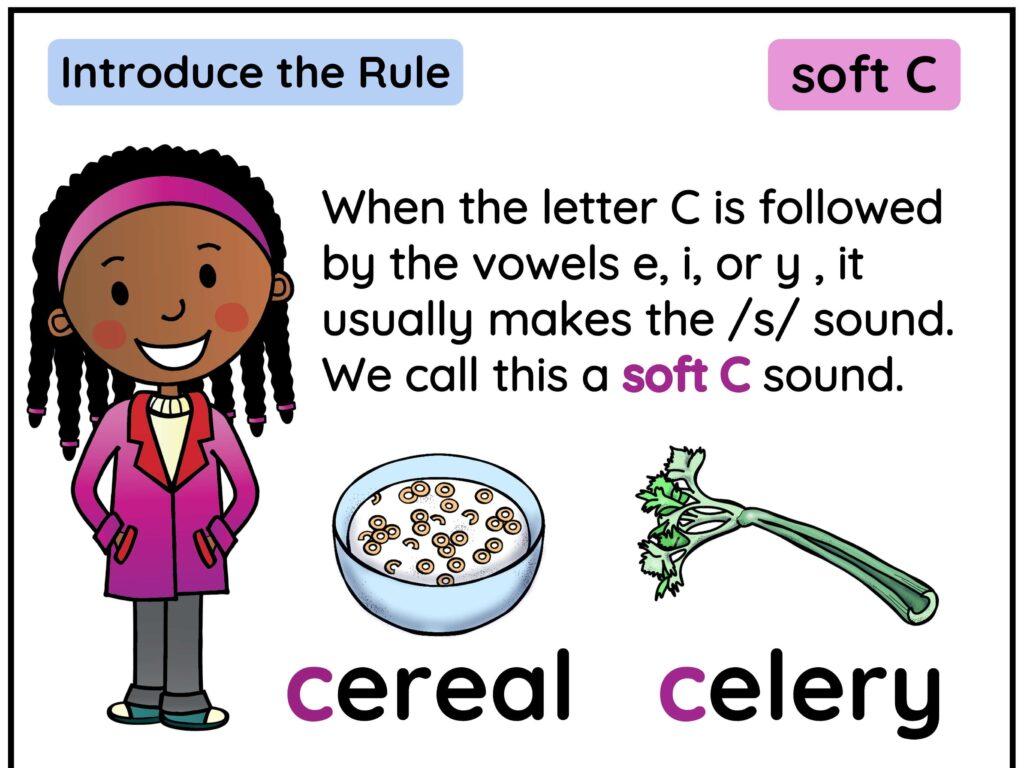Find Synonyms In Context
Subject: Language arts
Grade: Fifth grade
Topic: Synonyms And Antonyms
Please LOG IN to download the presentation. Access is available to registered users only.
View More Content
Finding Synonyms in Context
– Understanding synonyms
– Synonyms are words with similar meanings, like ‘happy’ and ‘joyful’.
– Importance of synonyms
– Synonyms enhance writing, making it more interesting and precise.
– Contextual clues for synonyms
– Words or phrases around a word in a sentence that hint at its meaning.
– Practice finding synonyms
– We’ll look at sentences and find synonyms for highlighted words.
|
This slide introduces the concept of synonyms and their significance in language arts. Begin by explaining that synonyms are words that have the same or nearly the same meaning as another word. Emphasize how using synonyms can make writing more vivid and help avoid repetition. Teach students to use context clues such as other words in the sentence to determine the meaning of a word and find its synonym. Engage the class with examples and encourage them to practice this skill by identifying synonyms in sentences provided in class or from their reading material.
Exploring Synonyms in Context
– What is a synonym?
– A word that means the same as another word.
– Examples of synonyms
– ‘Happy’ is a synonym for ‘joyful’.
– Synonyms have nuances
– ‘Shout’ and ‘yell’ are synonyms but used differently.
– Context influences meaning
|
This slide introduces the concept of synonyms to the students. Begin with the definition of a synonym as a word that has the same or nearly the same meaning as another word. Provide clear examples that the students can relate to, such as ‘happy’ and ‘joyful’. Explain that while synonyms have similar meanings, they can carry slight differences in connotation or usage, which can be important in writing. Emphasize how context can affect the meaning of synonyms and why choosing the right synonym matters. Encourage students to think of other examples and consider how synonyms can change the tone of a sentence.
Understanding Context in Synonyms
– ‘In Context’: What is it?
– It means considering the words around it to understand a word’s meaning.
– Context’s impact on meaning
– Words can have different meanings depending on the surrounding text.
– Synonyms rely on context
– Choosing the right synonym requires understanding the situation.
– Examples of context in literature
– We’ll explore how famous stories use context for synonyms.
|
This slide aims to explain the concept of context and its importance in identifying synonyms. ‘In context’ refers to looking at the words and sentences that surround a particular word to grasp its meaning. Context can significantly alter the meaning of a word, and therefore, it’s crucial when finding the right synonym. For example, the word ‘bright’ can refer to light intensity or intelligence, depending on the context. Understanding context helps in choosing the most accurate synonym that fits the situation. To illustrate this, provide examples from well-known children’s books or stories, showing how context clues lead to the correct synonym. Encourage students to think of words that change meaning with context and to practice this skill with their reading assignments.
Finding Synonyms in Sentences
– Identify the key word in a sentence
– Find the word that is central to the sentence’s meaning
– Use sentence clues for synonyms
– Look for words or phrases that give hints about similar words
– Practice with the word ‘Happy’
– Find other words that mean ‘Happy’ like ‘joyful’ or ‘elated’
– Share your synonyms for ‘Happy’
|
This slide is aimed at teaching students how to find synonyms within the context of a sentence. Start by identifying the key word that holds the main idea of the sentence. Then, guide students to use context clues such as definitions, examples, or descriptions provided in the sentence to find synonyms. For practice, use the word ‘Happy’ and encourage students to think of as many synonyms as they can, like ‘joyful’, ‘cheerful’, ‘elated’, or ‘content’. Have students share their synonyms and discuss how each synonym might be used in different contexts. This exercise will enhance their vocabulary and comprehension skills.
Synonyms in Literature
– Authors use synonyms for variety
– Like using ‘whisper’ instead of ‘speak’ for quietness
– Synonyms set the story’s mood
– ‘Gloomy’ vs. ‘cheerful’ creates different feelings
– Synonyms influence the story’s tone
– ‘Furious’ can show stronger anger than ‘mad’
– Example from children’s literature
– ‘Harry Potter’: ‘scrawny’ vs. ‘thin’ to describe Ron
|
This slide aims to teach students how synonyms enrich writing by adding variety, which prevents repetition and keeps the reader engaged. Discuss how word choice affects the mood, or the emotional setting, and the tone, or the author’s attitude towards the subject. Provide an example from a well-known children’s book, such as ‘Harry Potter’, where J.K. Rowling chooses ‘scrawny’ to give a specific connotation to Ron’s appearance, as opposed to just ‘thin’. Encourage students to think of synonyms for common words and how they might change the perception of a sentence in a story.
Your Turn: Synonym Search!
– Find synonyms in your book
– Note the words and synonyms
– Write down the original words and their synonyms from the story
– Share with the class
– Be prepared to tell us about each word and its synonym
– Discuss the context
– Explain how the synonym fits in the sentence
|
This activity is designed to engage students with their reading material by searching for synonyms within the context of their favorite book. Encourage them to think about the words they choose and to look for words that have similar meanings. They should write down both the original word and the synonym they found, along with the sentence from the book. During the sharing session, each student will explain why the synonym they chose fits into the context of the sentence. This will help them understand how synonyms can be used interchangeably while maintaining the meaning of the text. It’s also a great way for students to learn from each other and discover new books they might be interested in reading.
Class Activity: Synonym Bingo!
– Engage in Synonym Bingo
– Match synonyms on your Bingo card
– Find words on your card that mean the same as the called word
– Complete a row to win
– Enhance vocabulary skills
– This game helps to learn new synonyms and reinforces word knowledge
|
This interactive class activity is designed to make learning synonyms fun and engaging. Provide each student with a Bingo card that has a grid of words with various synonyms. Call out words, and students must identify and mark the synonym of the called word on their card. The first student to mark a complete row horizontally, vertically, or diagonally shouts ‘Bingo!’ and wins. Prepare a list of words and their synonyms that are appropriate for fifth graders. Consider having small prizes for winners to motivate participation. This game not only entertains but also educates by expanding the students’ vocabulary and their ability to recognize synonyms in context.
Wrapping Up: Synonyms & Looking Ahead
– Recap: Why synonyms matter
– Synonyms enhance writing and avoid repetition.
– Homework: Synonym Word Map
– Choose a word, find synonyms, and create a map.
– Next class: Introduction to Antonyms
– Antonyms are opposites; they’ll be our next adventure!
|
As we conclude today’s lesson, remind students of the value synonyms add to their writing by making it more interesting and helping to avoid repetition. For homework, students should select a word and create a word map with synonyms branching out from the central word. This visual tool will help them understand the concept of synonyms more deeply. In preparation for the next class, give a brief introduction to antonyms, explaining that they are the opposite of synonyms. This will set the stage for a smooth transition to the next topic and keep students engaged.

